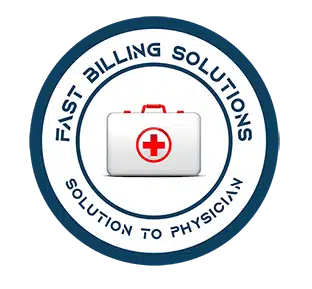
In the realm of healthcare, ensuring professionals have the right credentials is a fundamental aspect. Credentialing in Healthcare plays a crucial role in guaranteeing the qualifications, experience, and competencies of healthcare providers. This comprehensive process involves various steps, verifications, and assessments to validate a healthcare professional’s capability to deliver quality care. From educational background checks to training evaluations, credentialing aims to maintain high standards in healthcare services. In this article, we will delve into the intricate details of credentialing, its significance, the steps involved, and the impact it has on both healthcare providers and the patients they serve.
1. Understanding Credentialing
Credentialing, at its core, is the process of validating the qualifications, expertise, and background of healthcare professionals. This validation is essential for healthcare organizations, as it ensures that the professionals they employ meet specific standards of competence and ethical conduct. The process involves verifying various aspects such as education, training, licensure, certifications, work history, and more.
2. The Significance of Credentialing
Credentialing holds immense significance in the healthcare industry due to several reasons:
2.1 Ensuring Competence
Credentialing guarantees that healthcare professionals possess the necessary skills and knowledge to provide high-quality care to patients. This competence is vital for maintaining patient safety and enhancing the overall quality of healthcare services.
2.2 Legal and Ethical Requirement
In many jurisdictions, credentialing is a legal requirement to practice medicine. It ensures that healthcare professionals adhere to ethical standards and comply with the regulations set by the governing bodies.
2.3 Enhancing Credibility
For healthcare organizations, having a credentialed staff enhances their credibility and reputation. It demonstrates a commitment to quality and competence, which can attract more patients and partnerships.
2.4 Facilitating Insurance Reimbursements
Credentialing is often necessary for healthcare providers to be eligible for insurance reimbursements. Without proper credentials, reimbursement claims may be denied, affecting the financial aspect of healthcare practice.
3. The Credentialing Process

The Credentialing in Healthcare process involves several meticulous steps to verify a healthcare professional’s qualifications and capabilities. These steps are crucial for both individual practitioners and healthcare organizations.
3.1 Application Submission
The process commences with the Credentialing in Healthcare professional submitting a comprehensive application. This application typically includes details about their education, training, certifications, licensures, work experience, and any prior disciplinary actions, if applicable.
3.2 Primary Source Verification
One of the initial steps is the primary source verification, where the credentialing body directly contacts the institutions, organizations, or agencies to verify the provided information. This ensures authenticity and accuracy in the credentials.
3.3 Credential Verification and Review
The Credentialing in Healthcare are then thoroughly reviewed, comparing them against the predetermined standards and criteria set by the credentialing organization. Any discrepancies or anomalies are addressed during this stage.
3.4 Evaluation of Work History
The healthcare professional’s work history, including any malpractice claims or disciplinary actions, is evaluated to ascertain their conduct and performance in previous roles.
3.5 Peer References and Recommendations
Colleagues and peers provide references and recommendations, shedding light on the professional’s interpersonal skills, clinical competence, and overall suitability for the role.
3.6 Decision and Approval
Based on the gathered information and assessments, a decision is made regarding the approval or denial of the credentialing application. If approved, the healthcare professional is granted the necessary credentials.
4. The Role of Technology in Credentialing
Advancements in technology have revolutionized the credentialing process. Electronic Credentialing in Healthcare systems and software streamline the verification and storage of credentials, making the process more efficient and reducing manual errors.
5. Challenges in Credentialing
Despite its benefits, credentialing comes with its set of challenges, including:
5.1 Time-Intensive Process
Credentialing can be time-consuming, especially for healthcare professionals awaiting approvals to start their practice.
5.2 Administrative Burden
Healthcare organizations often find the administrative load of managing the credentialing process cumbersome and resource-intensive.
5.3 Keeping Up with Updates
Credentialing standards and requirements may change, necessitating regular updates and reviews of existing credentials.
6. Conclusion
In conclusion, credentialing is a vital process in the healthcare industry that ensures healthcare professionals are competent, qualified, and ethically sound to provide quality care to patients. It serves the dual purpose of upholding industry standards and safeguarding patient interests. As technology advances, streamlining the credentialing process will be key to addressing challenges and ensuring a seamless experience for both healthcare providers and patients.
FAQs (Frequently Asked Questions)
How long does the credentialing process take?
The duration of the credentialing process varies but typically takes several weeks to a few months, depending on the complexity and thoroughness of the verification.
What credentials are typically verified during the process?
The process verifies a range of credentials, including medical licenses, education degrees, board certifications, work experience, malpractice history, and any disciplinary actions taken against the practitioner.
Is credentialing a one-time process?
No, credentialing is an ongoing process to ensure healthcare professionals maintain their qualifications and adhere to the standards throughout their careers.
Why is credentialing important for healthcare facilities?
Credentialing is crucial for healthcare facilities to guarantee that they have a competent and qualified team, enhancing their reputation and the quality of care provided to patients.
Can a healthcare professional practice without credentialing?
In most cases, healthcare professionals are not allowed to practice in a healthcare facility without completing the credentialing process and receiving approval.
What are the consequences of failing the credentialing process?
Failing the credentialing process can result in a healthcare professional not being eligible to work in certain healthcare facilities, limiting their practice opportunities.
Fast Billing Solutions a Medical Billing Company in New York has been a pioneer organization for medical billing & coding in US. We have been in medical billing & coding industry for over a decade now and provide highly experienced medical biller that help your healthcare practice to gain a competitive edge. Boost Your Medical Revenue – Streamline Billing Process for Optimal Results! Maximize your practice’s earning potential with our cutting-edge Medical Billing solution. Efficiently manage claims, reduce errors, and accelerate reimbursements. Start increasing your revenue today!
